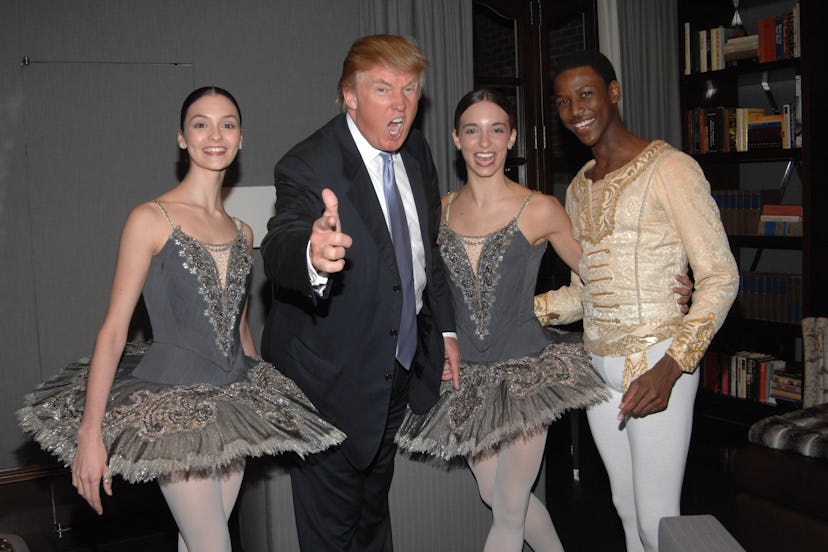Trump Vows to Defund the Arts: Here’s What Happens Next
Donald Trump has called for the elimination of the National Endowment for the Arts and other cultural agencies in his budget proposal.

Donald Trump became the first president in history to call for a total elimination of the National Endowment of the Arts and the National Endowment of the Humanities in his budget proposal since the programs were established under President Lyndon B. Johnson in the ’60s.
Though the combined budgets of the programs are just $300 million (or less than 0.01 percent of the federal budget), they provide valuable federal leadership and funding to the areas of arts and humanities. Trump’s calls to eliminate the endowments completely, along with both the Institute of Museum and Library Services and the Corporation for Public Broadcasting (an important source of funding for both PBS and NPR), is a worst case scenario for many in the art and culture worlds.
Here’s the good news: the President doesn’t actually write the budget. His proposal is simply that. The real work of writing the budget falls to the Congress, and they’re under no obligation to move forward with every one of Trump’s suggestions. Though, both houses of Congress are controlled by Republicans as well.
Arts leaders have prepared for the possibility of the elimination of the endowments for months, and already have plans to lobby members of Congress to save them. Though, public help doesn’t hurt.
Of course, a #SaveTheNEA campaign has already been launched, and a pre-written form to send a letter to your Senators and Congressperson is available online.
PEN America, an arts advocacy group made up of writers, has also spearheaded a petition pleading to save the endowments that has already received more than 230,000 signatures.
In essence, the game of saving the endowments is won by either winning over congressional Republican leadership or enough individual Republican votes to make a stand before all funding is cut.
Though federal arts funding in America is minuscule both in comparison to both the overall budget and the arts funding of many other nations, the endowments do signal that the nation both cares about the arts and humanities and can provide pivotal funding and leadership to several organizations and program.
However, the NEA in particular has long been something of a political football for Conservatives. President Ronald Reagan had mulled over the idea of eliminating the agency, but the former Hollywood actor was ultimately persuaded to back off of his call to eliminate it completely, in large part by friends in Hollywood.
At other times, Republicans and Conservatives have cherrypicked portions of the NEA’s funding to drum up controversy. In one of the more infamous examples, photographer Andres Serrano’s photograph Piss Christ won an award from an organization that was partially funded by the NEA. Never mind that the NEA neither commissioned the work nor played a direct part in choosing Serrano for the award. Never mind that the award was also funded by privat sources. Never mind, that, while some saw the work as anti-Christian, Serrano himself was raised Roman Catholic and still identifies as a Christian.
Though, such controversies and misrepresentations of what the NEA does have played an important role in calls to defund it. In large part, the NEA basically funnels money to state- and local-level arts organizations while also providing grants and fellowships to specific projects and artists. In recent years, the NEA has concentrated on funding arts education and programs that expand the arts into real life, like, for example, projects that explore art therapy as a way to help military veterans suffering from post-traumatic stress disorder.
While some have characterized the NEA as “welfare for the cultural elite,” the NEA has also increasingly become an important player in funding arts in rural areas. In fact, it may be arts programs far away from those “cultural elite” cities that will get hit the hardest.
Trump’s call to eliminate the NEA and its sister organizations may be unprecedented, but such a move has long been desired amongst certain segments of the Republican party. Their fate now rests on how convinced other Republicans can be to save them.
Watch W’s Most Popular Videos: